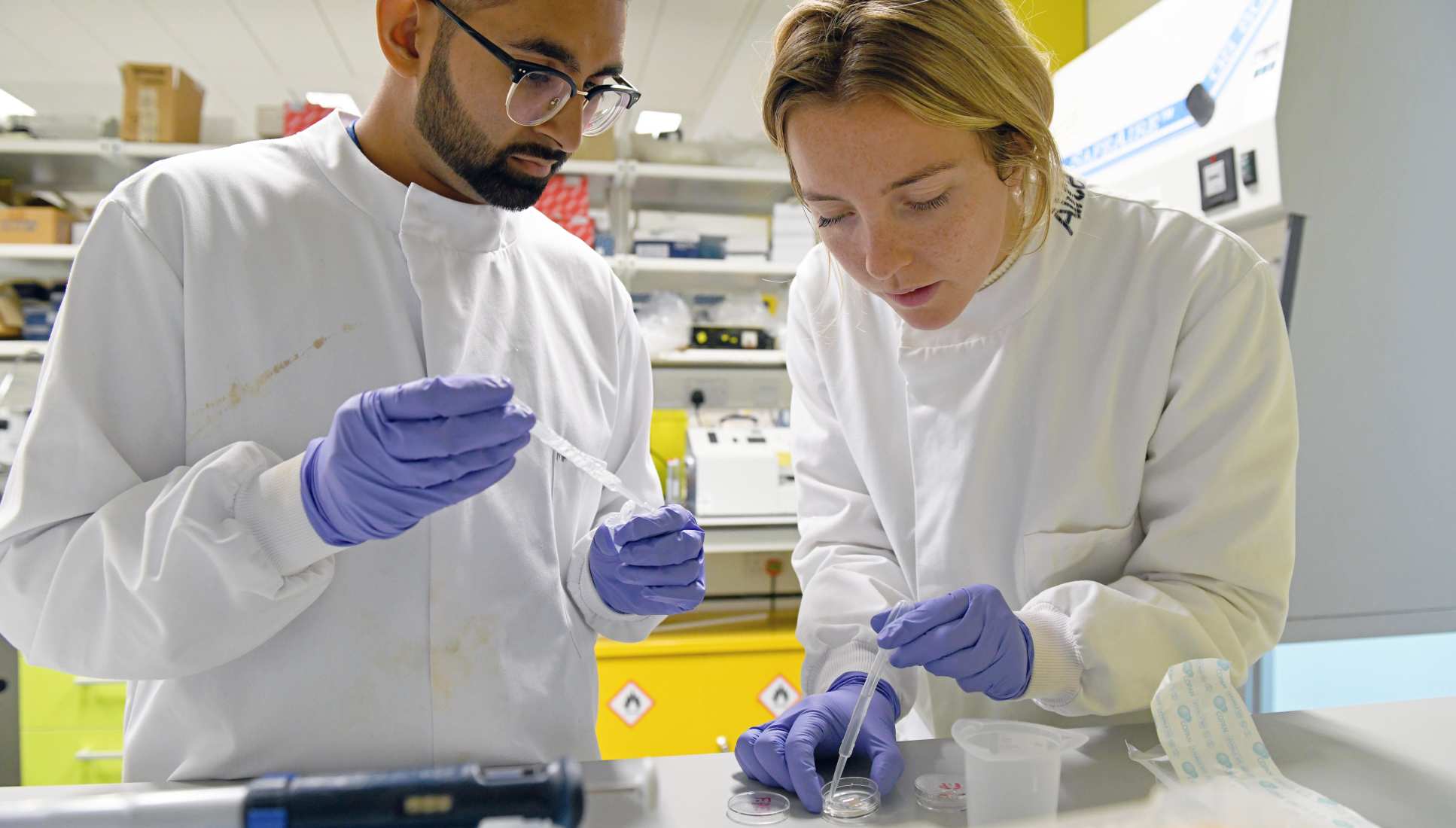
What we do
Our research focuses on understanding how changes to the function of the constituent cells of the heart lead to the clinical manifestations of disease. We use this knowledge to guide improvements in diagnostic procedures, provide better clinical management and generate novel treatments.
Why it is important
Heart and circulatory disease kills more than one in four people in the UK (causing 26 per cent of all deaths). This translates to nearly 160,000 deaths each year, an average of 435 people each day or one death every three minutes. By understanding disease processes and discovering new therapies we are endeavouring to revolutionise the treatment of heart diseases.
Impact of our research
Through our studies of the changes in the diseased heart, we have brought developments to the clinic with new electrophysiological methods and the first UK cardiac gene therapy clinical trials. We have discovered new mechanisms underlying chemotherapeutic cardiomyopathy and Takotsubo, or stress cardiomyopathy, and have identified a cell signalling protein called MAP4K4 as a trigger for cardiac cell death. Our BHF Cardiovascular Regenerative Medicine Centre is currently developing engineered heart tissue made from stem cell-derived cardiac muscle cells for grafting into damaged hearts. Novel biomaterials are being combined with the stem cells to produce an optimised functional cardiac patch. We also use these stem cell-derived human cardiac muscle cells as disease-in-a-dish models to understand the changes induced by human genetic variants.
Research Teams
- Cardiac Electrophysiology and AI Research Group, Hammersmith Campus
Summary of current research
The section brings together people with scientific and clinical backgrounds who have a breadth of expertise in the biochemistry, biophysics, immunology, physiology and pharmacology of the heart. They have strong cross-faculty interdisciplinary collaborations with Bioengineering, Computing, (notably through the ElectroCardioMaths programme), Physics (Photonics) and Materials.
Current projects
- Developing new imaging methods, allowing nanoscale resolution of cell structure to 3D visualisation of live heart tissue and cells.
- Evaluating conductive polymers to help stem cell-derived cardiac myocytes integrate safely into the damaged heart.
- Exploiting ultrathin slices of cardiac muscle to understand rhythm abnormalities, the integration of stem cells into the working myocardium and the effects of mechanical strain
- Generating gene edited and patient-derived pluripotent stem cells to help understand cardiac dysfunction and rhythm disturbances in hypertrophic cardiomyopathy.
- Improving our understanding of transcriptional events, cellular metabolic pathways and the epigenetic mechanisms that regulate cell differentiation.
- Exploring the paracrine effects of cell transplantation.
- Investigating the interactions between the immune and cardiovascular systems.
- Combining state-of-the-art clinical electrophysiology with the mathematical and computing sciences to improve the diagnosis and treatment of complex cardiac arrhythmias.
- Studying mutations in POPDC cAMP effector proteins that are associated with cardiac arrhythmias.
- Examining the cellular and molecular drivers of cardiac remodelling in healthy and failing human hearts.
- Investigating the relationship between exosomes (extracellular vesicles) and the development of cardiac pathologies and possible muscle repair pathways.
Connections
- British Heart Foundation
- Wellcome Trust
- Medical Research Council (MRC)
- European Research Council (ERC)
- European Commissions FP7
- Biotechnology and Biological Sciences Research Councils (BBSRC)
- Engineering and Physical Sciences Research Council (EPSRC)
- National Centre for the Replacement, Refinement and Reduction of Animals in Research (NC3Rs)
- Rosetrees Trust
The Cardiac Function Section hosts:
Section members play a large role in delivering BSc (Cardiovascular Sciences) and MSc/MRes programmes.
Our researchers
Dr Andreia Bernardo
Dr Andreia Bernardo
Research Fellow
Professor Thomas Brand
Professor Thomas Brand
Chair in Developmental Dynamics
Dr Rasheda A Chowdhury
Dr Rasheda A Chowdhury
Honorary Research Fellow
Dr Alicia D'Souza
Dr Alicia D'Souza
Associate Professor in Cardiac Electrophysiology
Professor Costanza Emanueli
Professor Costanza Emanueli
Chair in Cardiovascular Science
Professor Julia Gorelik
Professor Julia Gorelik
Professor of Cellular Biophysics
Professor Sian E Harding
Professor Sian E Harding
Emeritus Professor of Cardiac Pharmacology
Professor Prapa Kanagaratnam
Professor Prapa Kanagaratnam
Professor of Cardiology
Emeritus Professor Ken MacLeod
Emeritus Professor Ken MacLeod
Emeritus Professor of Cardiac Physiology
Professor Steve Marston
Professor Steve Marston
Emeritus Professor
Professor Fu Siong Ng
Professor Fu Siong Ng
Clinical Professor of Cardiology
Professor Steven A Niederer
Professor Steven A Niederer
Chair in Biomedical Engineering
Dr Michela Noseda
Dr Michela Noseda
Associate Professor in Cardiovascular Science
Professor Nicholas S Peters
Professor Nicholas S Peters
Professor of Cardiac Electrophysiology
Professor Tristan A Rodriguez
Professor Tristan A Rodriguez
Professor of Cell and Developmental Biology
Professor Nadia A Rosenthal
Professor Nadia A Rosenthal
Chair in Cardiovascular Science&ScientificDirector
Dr Pilar Ruiz Lozano
Dr Pilar Ruiz Lozano
Honorary Principal Research Fellow
Dr Jose L Sanchez Alonso-Mardones
Dr Jose L Sanchez Alonso-Mardones
Research Fellow
Dr Susanne Sattler
Dr Susanne Sattler
Advanced Research Fellow
Emeritus Professor Michael D Schneider
Emeritus Professor Michael D Schneider
Emeritus Professor in Cardiology
Dr Prashant K Srivastava
Dr Prashant K Srivastava
Associate Professor in Bioinformatics and Medical Statistics
Professor Cesare M N Terracciano
Professor Cesare M N Terracciano
Professor of Cardiac Electrophysiology
Dr Marta Varela Anjari
Dr Marta Varela Anjari
Honorary Senior Lecturer
Dr Liming Ying
Dr Liming Ying
Associate Professor


